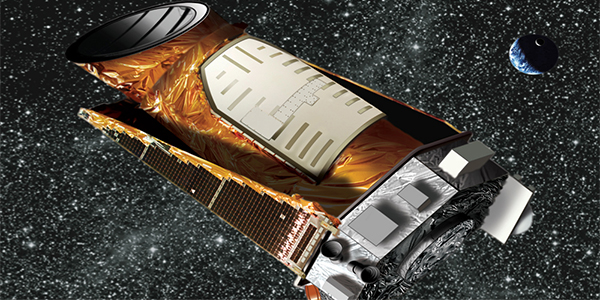Discover studying with real data

Although it is difficult to compare the Massive Open Online Course (MOOC) on exoplanets with other University of Geneva MOOCs – considering that astronomy studies offer less job prospects than those of management or IT – MOOC Exoplanets has nevertheless been a great success. There were 22,000 registrations, 12,000 were “present” and 1,100 have answered every multiple choice questionnaires correctly. However, to further motivate the students, the University of Geneva has decided to update its Exoplanets MOOC by opening the possibility of analyzing real data.
Indeed, what could be more exciting than working on real astronomical data with the secret hope of discovering an unknown world. With the new MOOC on Exoplanets the University of Geneva students will have access to satellite Kepler data to try to discover what NASA could not automatically see. Hundreds of thousands of stars were photographed at regular intervals to chart their light curve. If one of them shows a planet which luckily passes between it and the observer, the planet causes a mini eclipse called transit.
NASA has built robust algorithms in order to identify these transits but some may have escaped from them, especially when there are several planets. The transit period can then vary depending on the number of planets revolving around the star. These TTV (Transit Time Variation) are particularly difficult to identify and in this case the human eye may be more effective than the machine.
To further his training, the student will first have access to Kepler data and will be able to analyze at will these unanalyzed stars hoping to discover a planet or data already reduced. Secondly, and when ready, the student will have access to the data of the new NGTS telescope that the University of Geneva, NCCR PlanetS, the Universities of Belfast, Warwick, Leicester, Cambridge, Santiago and DLR Berlin installed earlier this year in Chile. The NGTS data will be new and light curves of hundreds of thousands of stars can be analyzed through the MOOC Exoplanets.
If the student has the opportunity to practice on real data, professional astronomers will benefit from their experience. In fact, when a case is considered interesting by one or more students, it will be forwarded to the Observatory of Geneva. Astronomers and members of PlanetS will then judge the relevance of the analysis and will go on with the research if necessary. If the case merits deeper investigation professionals will then involve the author or authors of the discovery in more targeted measures (radial velocity, transit confirmation with CHEOPS). If the object is interesting to the point of publishing an article in a scientific journal, the author or authors could possibly participate in its drafting. This collaboration should further increase motivation of exopolanets students. (pb)
Website of Geneva University MOOC’s : http://moocs.unige.ch/
Categories: Internal Newsletter
